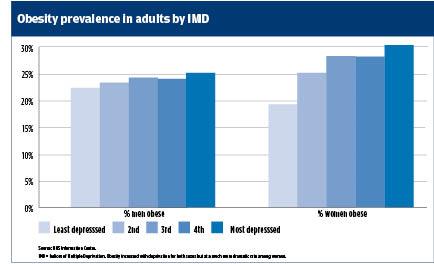
The number of people in the UK who have been diagnosed with diabetes has doubled over the last two decades, new figures from Diabetes UK have revealed.
The analysis shows that there are now nearly 3.7 million people in the UK living with a diabetes diagnosis – a two-fold increase from the 1.9 million in 1998.
Chris Askew, Chief Executive of Diabetes UK, said: ‘Diabetes is the fastest growing health crisis of our time; and the fact that diagnoses have doubled in just twenty years should give all of us serious pause for thought.
‘Both Type 1 and Type 2 diabetes are serious conditions that can lead to devastating complications such as amputation, blindness, kidney disease, stroke and heart disease if people don’t receive a timely diagnosis and begin receiving the right care.’
Nearly 9 in 10 people who are diagnosed with diabetes have Type 2, and it is thought that up to 1 million people could presently be living with an undiagnosed condition. With this population added to the total diagnosed figures, the number of people living with the condition could be upwards of 4.5 million.
Moreover, there are an estimated 12.3 million people at higher risk of Type 2 diabetes in the UK, with obesity being the leading cause in most preventable cases.
Obesity carries with it an increased risk of Type 2 diabetes, heart disease, stroke and certain forms of cancer. Although Type 1 diabetes is not preventable, Type 2 is. Three in five cases of Type 2 could be prevented through behavioural change and lifestyle choices.
‘With more than 12 million people across the UK at risk of developing Type 2 diabetes, and prevalence of both Type 1 and Type 2 diabetes still on the rise, it’s clear there’s a huge amount of work to be done,’ added Chris Askew.
This is where regional circumstances and inequalities may come into effect.
Bradford in West Yorkshire – which is on the list of most deprived places in the country according to the Index of Multiple Deprivation (IMD) – has the UK’s highest level of diabetes, with more than 1 in 10 people (10.4%) having the conditions.
Meanwhile, Richmond in London – on of the UK’s wealthiest areas – has the lowest incidence of diabetes, with only 3.6% of the population presenting.
Although there is no definitive proof of the causal link between deprivation and obesity, there is certainly a correlation between the two, with obesity more prevalent in the poorest sections of UK society.

In the UK in 2015, 58% of women and 68% of men were either obese or overweight. The prevalence of obesity rose from 15% in 1993 to 27% in 2015.
What’s more, childhood obesity is also rising, which makes obesity in later life more likely.
More than one in five children are overweight or obese in their first year of primary school in England and this increases to more than one in three (34%) by the time they leave primary school.
As such, Diabetes UK is calling on the government to take greater action to tackle these alarming levels by introducing stricter restrictions on junk food, advertising aimed at children and the practice of supermarkets having price promotions for unhealthy products.
‘We want the Government to recognise the seriousness of the growing diabetes crisis, take action to help those at increased risk, and help us turn the tables on this devastating condition,’ added Mr Askew.
